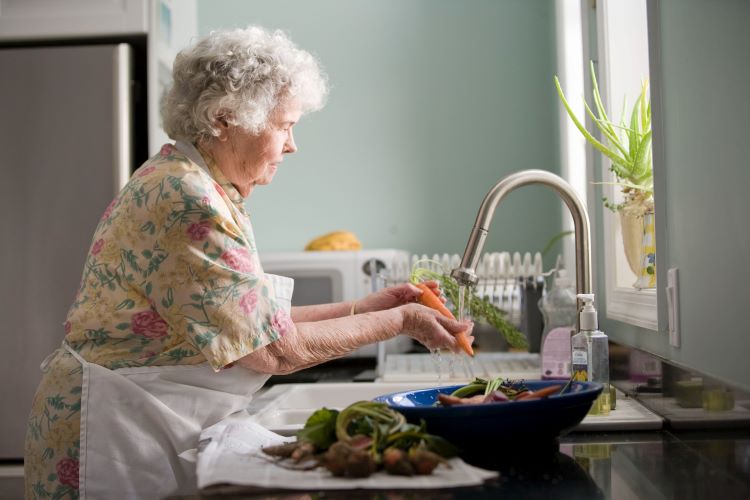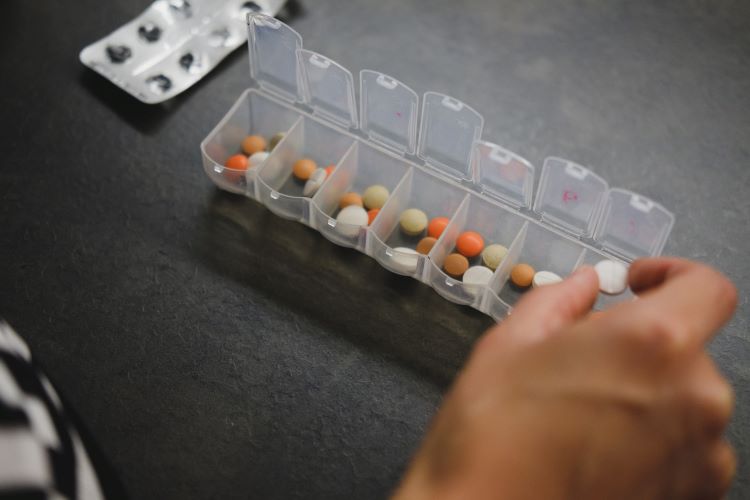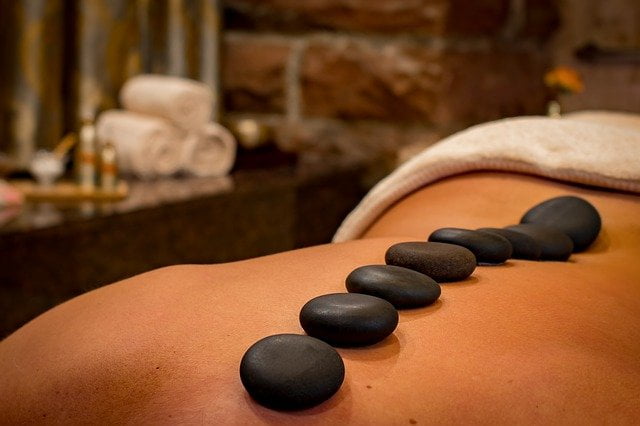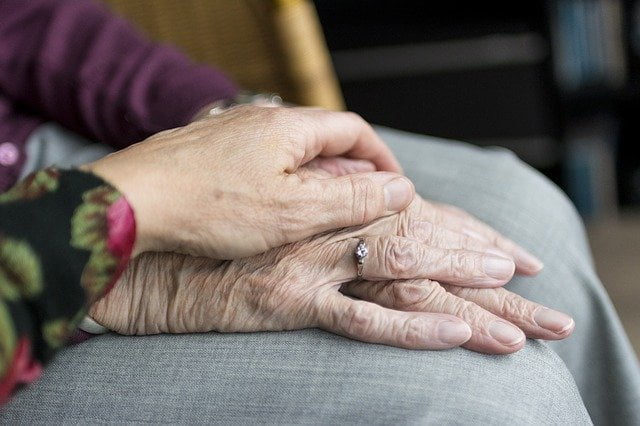Drug & Alcohol Rehab Bournemouth & Near Bournemouth
Quick Links for help with addiction in Bournemouth and near Bournemouth
- What is Drug and Alcohol Addiction in Bournemouth?
- What Happens When I Arrive At Rehab in Bournemouth
- Will Rehab in Bournemouth Cure Me of My Addiction?
- What Happens If I Don’t Get Help at a Rehab in Bournemouth?
- Can I Force My Loved One to Go to Rehab in Bournemouth?
- How Do I Prepare for Addiction Rehab in Bournemouth
- How Much does Rehab Cost in Bournemouth?
- How to Choose the Right Drug and Alcohol Rehab in Bournemouth
- Heroin Rehab in Bournemouth
- Cannabis Rehab in Bournemouth
- What Happens in Alcohol Rehab in Bournemouth?
- How Can I Refer Myself to Rehab in Bournemouth?
At Rehab Recovery, we are here to help if you suffer from an addiction to drugs or alcohol in Bournemouth or near Bournemouth.
We offer detoxification, rehabilitation, addiction counselling and aftercare services for people living in Bournemouth who are currently suffering from any possible form of addiction.
What Types of Addictions Are Treated At Rehab in Bournemouth?
Addictions commonly treated [1] at alcohol or drug rehab include:
- Alcohol addiction and binge drinking [2]
- Benzodiazepine addiction
- Cannabis use disorder
- Cocaine dependence
- Opioid use disorder
- Behavioural addictions such as gambling addiction
- Buprenorphine addiction
- Crack cocaine addiction
- Ketamine addiction
Whatever the level of involvement [3] your addiction has reached, our expert team is here to help you.
To access our high-quality support to attend an alcohol rehab Bournemouth, contact us today on 0800 088 66 86
Drug and Alcohol in Bournemouth – What Are the Statistics?

Image above: Group looking at the sun at a drug and alcohol rehab in Bournemouth
Drug and Alcohol Statistics in Bournemouth and the UK (2018/2019)
Below, we provide some statistics about drug use in Bournemouth:
| Drug and Alcohol Statistics in Bournemouth | Data |
| Total Drug-Related Deaths (2019) | 23 |
| People in Rehab Treatment for Opiate Addiction | 757 |
| People in Treatment for Alcohol Dependency | 309 |
| Alcohol-Related Hospital Admissions | 807 |
Statistics from the local council [4] show that as of the end of 2019, 309 people in the Bournemouth area were in treatment for alcohol dependency.
This is estimated to be only 15% of people with an alcohol addiction in the Bournemouth area, meaning that many addiction sufferers are not recieving treatment.
During this time, 757 people were in treatment for opiate addiction, this is estimated to be around 40% of people with an opiate or crack cocaine addiction in Bournemouth.
With these figures in mind, it is obvious that there is a need for drug and alcohol rehab in Bournemouth and near Bournemouth.
This is even more concerning when one considers the drastic impact addiction can have on a person’s life expectancy. [5]
Addiction can be caused by genetics, the addictive qualities of the drug itself, social pressure [6], mental health problems, environmental issues [7] and a wide range of other factors.
Everybody and their addiction is different, so we take a personalised approach to treatment. [8]
You can read more about the disease of addiction here. [9]
Don’t wait until it’s too late to get help in Bournemouth or near Bournemouth – call our expert team today on 0800 088 66 86.
What is Drug and Alcohol Addiction in Bournemouth?
Image above: Two people holding hands at an alcohol rehab in Bournemouth
When you contact our admissions team for drug and alcohol rehab in Bournemouth, we begin by assessing your situation and unique needs. This assessment is carried out using a standard questionnaire.
This questionnaire allows us to identify all relevant facts relating to your addiction. [10]
This information allows us to recommend a course of treatment that best suits your specific needs.
If you are a friend or family member of someone suffering from drug or alcohol addiction, our admissions team will also carry out this initial assessment but we appreciate the fact you may not have all of the information we require.
If this is the case, we may request you contact the person you are representing directly so that we may conduct this assessment accurately and completely.
What Happens in a 28-Day Drug and Alcohol Rehab Treatment Programme in Bournemouth?
The 28-day rehabilitation rehab treatment programme is the most popular type of rehab plan, which allows individuals enough time to receive both a detox and therapy.
Usually, those who receive a 28-day rehabilitation treatment plan will suffer from a mild to moderate addiction and will also be suffering from a mentally and physically addictive drug, such as alcohol or heroin.
The first 10 days will be spent during a detox, which will involve withdrawing from the addictive substance.
Usually, most people spend a minimum of a least 10 days during this part of the treatment plan, although you might end up spending more.
Once you have received this, you will then move on to the therapy side of your treatment, which will usually last at least 18 days.
You will receive a whole host of different therapy techniques, including cognitive behavioural therapy.
A section of your time will be spent working on a relapse prevention and aftercare plan which will come home with you once you leave rehab in or near Bournemouth.
What Happens When I Arrive at Drug and Alcohol Rehab in Bournemouth?

Once this initial assessment is completed, we may then look to recommend the best steps forward in terms of accessing a treatment programme [11] in Bournemouth or near Bournemouth that’s suitable and affordable.
Since we work closely with several treatment providers in Bournemouth or near Bournemouth, we are able to offer you or your loved one a course of treatment that meets your particular recovery goals [12] without compromising on the quality of treatment on offer.
Our approach to cherry-picking the best possible treatment providers in Bournemouth ensures you or your loved one’s chances of succeeding in recovery are maximised.
To access our high-quality support, contact us today on 0800 088 66 86
How Do I Know If I Need Drug and Alcohol Rehab in Bournemouth?

Detecting the signs that an addiction has developed [13] can be a supremely difficult task.
When one is looking to enter drug and alcohol rehab in Bournemouth or elsewhere, it is imperative to look for the following signs in their physical health, mental wellbeing [14] and behaviour[15]:
- Consuming alcohol to calm turbulent emotions or stress
- Consuming alcohol to get through the day [16]
- Consuming alcohol in spite of debilitating hangovers
- Consuming alcohol to the point where relationships become strained or severed
- Being deceptive about alcohol consumption
- Experiencing depression or aggression [17] when under the influence of alcohol
- Drinking increasing quantities [18] of alcohol over time
- Experiencing poor mental or physical health when sober
- Drinking in the morning or at work/school
More distinct physical signs include:
- Brain damage [19]
- Cirrhosis [20]
- Heart disease [21]
- Blood pressure issues [22]
- Organ damage [23]
- Gastrointestinal issues [24]
- Liver failure
- Hepatitis
- Cancer [25]
- Delirium tremens
- Deficiencies of various minerals (Calcium, iron, zinc, magnesium, etc.) [26]
- Seizures
These symptoms are not universal and it is worth remembering that individuals will often display different reactions to the same addictions.
For example, a type one alcoholic [27] will often suffer from anxiety and typically will not drink for pleasure, whereas a type two alcoholic [28] usually will drink for pleasure and will not struggle with anxiety.
In many cases, an addiction to drugs or alcohol is part of a larger problem.
Addiction tends to be a symptom of other often undiagnosed mental health conditions such as depression or schizophrenia.
Borderline Personality Disorder (BPD) [29] and Anti-social Personality Disorder (APD) [30] are the two mental health conditions most often associated with addiction.
If you suffer from an underlying mental health condition it is much more difficult to get clean of harmful substances without treating the co-occurring issue.
When you attend drug and alcohol rehab in Bournemouth, your addiction will be treated, and any underlying mental health conditions will be diagnosed and treated at the same time. This will give you a greater chance of obtaining and maintaining sobriety.
In these facilities, addiction is not seen as a failure. Instead, addiction is treated as a disease of the brain. This is because addiction alters the chemistry of the brain
Addiction is not considered a ‘choice’ or ‘moral failing’ on behalf of the addiction sufferer [31] – so the focus of rehab is always on returning agency to the patient.
Using the disease model of addiction, drug and alcohol rehab facilities focus on abstinence instead of moderation management [32] because addiction is treated as an illness that a person continues to suffer from for life, even long after achieving sobriety.
Experts have agreed [33] that abstinence is far more effective than harm reduction [34], so that is what most rehabs work towards.
When you abstain completely from drugs or alcohol, you are much less likely to relapse or binge.
To access our high-quality support, contact us today on 0800 088 66 86
How Effective is Rehab in Bounremouth at Treating Alcohol or Drug Addictions?

Image above: Two men hugging at a rehab in Bournemouth
Treatment [35] for drug and alcohol addiction issues does work, and there are millions of success stories every year. However, it is not straightforward.
This is because relapse rates for addiction are high and a number of people go on to relapse years after they receive their treatment.
For this reason, it is incredibly difficult to put an exact number on success rates for addiction and recovery.
According to a study carried out by SAMHSA (Substance Abuse and Mental Health Services Administration) [36], found that approximately 10% of those suffering from a drug and alcohol addiction issue get the treatment they need to recover.
According to another study carried out by Public Health England [37], 48% of those who were in treatment for a drug and alcohol addiction in 2017 went on to successfully complete their treatment.
When it comes to substance-specific recovery rates, those suffering from an alcohol addiction were statistically more likely to recover and stay sober, compared to other drugs and substances such as opiates.
It is important to understand that your time in drug and alcohol rehab will be successful if you put the time, dedication and motivation [38] into your recovery and work hard to overcome both your physical and mental addiction.
Will Drug and Alcohol Rehab in Bournemouth or Near Bournemouth Cure Me of My Addiction?

As discussed above, not everyone who attends drug and alcohol rehab will be ‘cured’ of their addiction.
In fact, there is no one, straightforward ‘cure’ for addiction. [39] Instead, the only way you are able to recover is to dedicate a significant amount of your time, energy and motivation into your recovery.
During your time at drug and alcohol rehab in Bournemouth, you will spend a significant amount of your time focussing on the mental side of your recovery.
This will equip you with everything you need to recover and stay sober [40], including coping mechanisms and relapse prevention tools.
During your time at rehab in Bournemouth, you will also get the chance to undergo a detox.
This detox will involve withdrawing from taking the addictive substance over a period of time, so that your body will no longer be dependent on the substance(s) you are addicted to.
By doing so, you will experience a range of withdrawal symptoms. However, by the end of your withdrawal and detox, your body will no longer be dependent on the substances that you have been addicted to for so long.
Don’t wait until it’s too late to get help in Bournemouth – call our expert team today on 0800 088 66 86
Does Drug and Alcohol Rehab in Bournemouth or Near Bournemouth for Teens Work?

Unfortunately, the number of teenagers who are requiring drug and alcohol treatment is on the rise.
Addiction can affect anyone regardless of their age [41], sex or background, so no one is ever completely safe from it,
No one can deny that being a teenager is a difficult and turbulent time.
Not only are your hormones all over the place, but life can be extremely hard to manoeuvre, with academic expectations more intense than ever, social media creating unrealistic expectations and more and more teenagers suffering from mental health issues.
For a struggling teenager, turning to drugs and alcohol might seem like the only option.
Unfortunately, there are now more drugs on the streets than ever before, meaning that drugs are now more readily available than ever for teenagers.
However, becoming addicted to drugs or other substances as a teenager can do some serious damage to both your body and your mind.
This is because, at such a young age, your body and mind are still developing. [42] In fact, by abusing drugs and alcohol as a teenager you could find that you remain physically dependent on the substances as an adult.
Mentally, abusing such substances as a teenager will interfere with the neurotransmitters that are still forming in the teen’s brain. altering the teen’s ability to experience pleasure, remember facts and deal with strong emotions.
This is why drug and alcohol rehab and treatment is essential for teens suffering from addiction issues.
By intervening before things get too bad, you stand a chance of helping the young suffer make a full recovery and overcome their addiction to drugs and alcohol before it becomes a long-term issue. [43]
What Happens If I Don’t Get Help at a Drug and Alcohol Rehab in Bournemouth?

Unfortunately, if you do not get the right kind of help for your addiction issues, then you should expect them to get worse before they can get any better.
Addiction can be progressive, meaning that it will get worse over time.
This is because when someone is addicted to drugs or alcohol, their tolerance increases over time.
This means that you will continue to need more and more of the addictive substance in order to feel the same effects you once felt consuming a lot less. Essentially, your addiction will escalate as your tolerance does.
This can lead to a whole host of physical and mental health issues, including liver and lung disease, heart disease, depression, anxiety, paranoia and a whole host of other issues.
When you consume too much of an addictive substance, your frontal cortex is impacted, meaning that individuals are not able to make sensible decisions, including the decision to quit.
This is why it is incredibly hard for anyone who is suffering from an addiction to quit themselves, without any professional help.
By attending drug and alcohol rehab in Bournemouth and throughout the rest of the UK, you will gain access to the right kind of help that you need to break the addiction cycle and recover successfully.
Don’t wait until it’s too late to get help in Bournemouth – call our expert team today on 0800 088 66 86
Why Should You Avoid Recovering on Your Own?

Recovering on your own is incredibly difficult, especially if you suffer from a physically addictive substance such as alcohol, heroin or cocaine.
This is because when your body is addicted to a physically addictive substance or drug, your body becomes dependent on that substance.
Your tolerance will increase over time and your body will start to crave and rely on that substance in order to function day to day. In order to overcome their addiction, they will need to undergo a medical detox.
This detox includes withdrawing from the addictive substance until the body no longer craves or relies on the substance in order to cope.
Detoxing from any addictive substance is often the hardest part of the process as it is both mentally and physically challenging.
You will experience a wide range of withdrawal symptoms, including headaches, nausea, depression, anxiety and paranoia. You might also experience excessive sweating, excessive breathing and heart rates and nightmares.
Some individuals will experience severe symptoms, whilst others might experience mild or moderate symptoms.
Some people will experience symptoms for a number of weeks, whereas others will experience symptoms for just a few days.
Can I Recover From Addiction Without Help From a Drug and Alcohol Rehab in Bournemouth?

As discussed above, it is incredibly difficult to recover from a drug and alcohol addiction without getting professional help.
Addiction is classified as a disease, which means that you will need medical treatment in order to recover, usually both mentally and physically.
Kicking any addiction can be really challenging, but with the right help, it is not impossible.
There are many reasons why people are best recovering within the rehab environment, including the chance to receive detox treatment in a safe and secure environment.
Within the detox environment, you get the chance to withdraw slowly, surrounded by doctors and other medical, healthcare professionals.
They will monitor your withdrawal symptoms on an hourly basis and make sure that you are equipped with everything you will need to recover smoothly.
If any symptoms get out of control, then your doctors will prescribe you with medication such as Librium to manage your withdrawal symptoms.
If you attempt to detox from a severe addiction alone and at home, then you run the risk of your withdrawal symptoms getting out of hand and causing you with very serious health issues, both in the long and short term.
If you suffer from highly addictive drugs, such as opiates, then you could even be putting your life at risk by attempting to withdraw without professional help.
Don’t wait until it’s too late to get help in Bournemouth – call our expert team today on 0800 088 66 86
Can I Force My Loved One to Go to Alcohol Rehab in Bournemouth?

No, you are not able to force a loved one to go to drug and alcohol rehab in Bournemouth if they do not want to.
You are only able to recover from a drug and alcohol addiction if you really want to and if you have the motivation to recover yourself.
However, if the individual suffering from an addiction issue is under the age of 18, then your parent or guardian will make the decision for you, acting in your best interests.
If the individual is over 18 years old, then they will have to decide to attend rehab themselves.
The best way to convince a loved one to attend drug or alcohol rehab in Bournemouth or throughout the rest of the UK is to hold an intervention.
This is a meeting with the individual and their loved ones, where you will lay out your concerns and different treatment options.
Will I Be Able to See My Family During Rehab in Bournemouth?

Some drug and alcohol rehab centres across Bournemouth and the rest of the UK do allow family members to visit the individual within the rehab centre.
However, some rehab centres only allow this if they believe that this will be a positive and motivational experience.
Whilst some rehab centres will allow some family members to visit you with the rehab centre, this might only be at certain points during your treatment plan, such as after your detox and withdrawal and towards the end of your therapy treatment plan.
It is important to note that children are not permitted to visit you within a rehab centre.
Family will play a huge role in your recovery, so it is important to keep them in the loop when it comes to your recovery and make sure that they are supporting you in the best way that they can.
You should make sure that they know where you are and that you are open to visitors.
However, it is important to understand that during your time in rehab, you will receive a lot of therapy treatment that might change or reframe the way that you think about your family or certain people in your life.
It is important to remember that certain family members might be a negative or triggering influence and that you will need to think long and hard about who in your family supports and cares for you and wants you to recover, and who promotes your addiction and mental health issues.
Don’t wait until it’s too late to get help in Bournemouth – call our expert team today on 0800 088 66 86
Can I Leave Drug and Alcohol Rehab in Bournemouth At Any Time?

Rehab centres are not allowed to hold you there against your will. However, leaving a drug and alcohol rehab centre in Bournemouth or throughout the rest of the UK early can cause issues and complications.
During your withdrawal, you will not be able to leave as you will be undergoing withdrawal symptoms which can be highly unpleasant and which can lead to life-threatening issues.
However, once you complete your withdrawal and start your therapy, you will be free to leave should you want to.
By doing so, you reduce your chances of recovering fully and will most likely end up back in rehab over the following months or years.
You are significantly more likely to relapse if you leave your rehab plan early and do not undergo your full treatment plan.
Rehabilitation is a huge commitment and it is not going to be easy.
However, if you complete your rehab programme then you have a chance of improving your life and changing it for the better.
Leaving rehab early and returning back home halfway through your treatment plan can cause some complications and a lack of clarity when it comes to your addiction.
By leaving early, you might not receive an aftercare or support plan, which usually plays a vital role in anyone’s recovery once they leave the rehab and treatment program and return home.
Will My Rehab Programme in Bournemouth Be Confidential?

Yes, everything that happens and is said within your rehab facility will be confidential.
In fact, all rehab facilities make confidentiality and your safe recovery their two main priorities.
Every aspect of your stay at rehab will be completely confidential, but there are a number of things that you can do to ensure added privacy in your personal life.
For example, it is always recommended to attend a rehab centre that is removed from your day-to-day life and family.
However, you will also want to choose a rehab centre that is close enough to your family and friends so that they can visit you if you need them to.
It is also important to be careful who you talk about your recovery plans to, and to be careful who you confide in.
Don’t wait until it’s too late to get help in Bournemouth – call our expert team today on 0800 088 66 86
Do Rehab Centres in Bournemouth Provide Gender-Specific Treatment?

Yes, more and more rehab centres are providing gender-specific rehab treatment to their clients.
This is because more and more studies have shown that the way male and females deal with addiction is very different, and therefore the way that they recover is also very different too.
For example, the way men’s and women’s bodies react differently to certain drugs and substances can differ a lot.
Additionally, men and women might suffer from different societal pressures, norms and triggers that might have influenced their addiction in the first place.
The National Centre for Biotechnology Information [44] carried out a study that found that women are more likely to face barriers to treatment than men are, but they’re also more likely to seek treatment for their mental health issues.
The reality of this has meant that more and more rehabilitation professionals have concluded that men and women will sometimes need different things when it comes to their recovery.
This is why so many more rehab facilities have started to include gender-specific rehab treatment in their treatment plans.
There are numerous benefits when it comes to gender-specific rehab treatment, including better peer support, more specialised therapy, better and more focused discussion as well and more sensitive conversations during therapy sessions.
How Do I Prepare for Addiction Rehab in Bournemouth?

The idea of attending drug and alcohol rehab in Bournemouth can be overwhelming and daunting for many people.
You should only pack things that you need, such as your pyjamas and some clothes.
You will be able to wash your clothes during your stay, so don’t worry about packing all your clothes.
Bring some books or some photos, to put up in your room. This will serve as motivation and inspiration to help you to recover.
You should also bring an alarm clock, as you will most likely not have your phone during your whole stay and will need to be up and at treatment at certain times of the day.
You could also bring a journal with you, to write in every day to help you to keep track of your thoughts, your recovery process and any revelations you might have during your therapy treatment.
Don’t wait until it’s too late to get help in Bournemouth – call our expert team today on 0800 088 66 86
How Do I Tell My Boss I’m Going to a Drug & Alcohol Rehab in Bournemouth?

Whilst you do not have a legal obligation to tell your boss that you are taking time off to attend drug and alcohol rehab, at Rehab Recovery we believe that it is always best to be as open and honest with your employer as possible when suffering from an addiction.
You should pull your boss, along with a HR representative if you have to into a meeting room and explain your current situation.
You should be as open and honest as possible about how long you have been suffering from an addiction for, what type of substances you are addicted to, how long your treatment will likely take and where you will be based during your treatment.
You should make it clear to them that you are looking forward to receiving rehab treatment so that your performance at work can improve and you can get back on track with your work.
How Do I Tell My Family I’m Going to Rehab in Bournemouth?

Telling your friends and family that you need to attend rehab is a scary and daunting thought.
However, studies have shown [45] that by being open and honest with those who you love most about your addiction issues, you are more likely to receive support and stay sober once you leave.
You should aim to pick a time and a place for having this conversation.
You can either tell everyone separately or get those you love most into the same room and tell them all at once. You should also pick a quiet, private and calm environment to have this conversation.
You should try to be understanding towards their reaction and should prepare yourself for different loved ones to react in a different way.
Some loved ones might be confused if they are unaware of your addiction issues, whereas some might have known along and will be expecting this.
Other family members might be sad and might start to cry, whereas others might be pleased that you are finally seeking the treatment that you need.
Don’t wait until it’s too late to get help in Bournemouth – call our expert team today on 0800 088 66 86
Can I Lose My Job If I Leave to Go to Rehab in Bournemouth?
Employment law protects people who are suffering from a drug and alcohol addiction and who need to take time off to receive treatment.
In fact, suffering from a drug and alcohol addiction and not receiving any treatment could result in losing your job anyway, as your addiction will most likely escalate.
You are protected because addiction is classified as an illness, so in most cases, you will be permitted to take time off for sick leave.
Whilst your employer might not know how to react in this situation, it is important that you know your rights prior to telling your employer that you need to take him off to receive rehab treatment.
The Health and Safety Executive [46] lists a number of pieces of advice for employers who are dealing with someone with an addiction issue, as well as support for employees who are suffering from addiction issues.
Will Your Insurance Cover Rehab in Bournemouth?

Yes, many insurance policies cover rehab treatment as part of their coverage. However, it is important that you check with your insurance company that they definitely cover your form of treatment prior to starting your treatment.
Whether or not you are covered for rehab treatment will depend on which insurance company you are with and what your level of cover is.
Alcohol and drug treatment is covered by most insurance companies in the UK, including BUPA, Aviva, AXA and Cigna. However, some of these companies might only cover certain types of rehab treatment, such as a medical detox, inpatient or outpatient treatment.
This is why it is always incredibly important to check what type of treatment you will need to recover and what types of treatment your insurance company covers.
If you are worried about the cost of attending rehab in Bournemouth or throughout the rest of the UK, then talk to your insurance company or to a member of Rehab Recovery for help and support.
Don’t wait until it’s too late to get help in Bournemouth – call our expert team today on 0800 088 66 86
Is Addiction Treatment Accessible Through the NHS in Bournemouth?

A lot of people mistakenly believe that private residential rehab is out of their price range before even exploring their options, and because of this, they go straight to the NHS for help.
While the NHS can provide some level of help and support, it is severely underfunded and doesn’t have the resources that a private rehab has access to.
Private rehab facilities are more affordable than many people think, and most of them offer payment plans to make them more accessible to those who need them.
If you are considering drug and alcohol rehab in Bournemouth, it is important to research both private and council-funded rehab facilities so that you are equipped with all the information to make the right decision.
The benefits of private rehab in Bournemouth or near Bournemouth
- You will be admitted immediately so your treatment can begin straight away
- A comprehensive treatment plan that includes dual diagnosis and treatment of co-occurring conditions
- 24/7 access to medical professionals in Bournemouth
- A safe, confidential, and comfortable environment
- Specific treatments that are tailored to your needs
- Learning how to spot and overcome your triggers [47]
- Understanding the root cause of your addiction [48]
- You will learn relapse prevention techniques
- A dedicated aftercare program in Bournemouth
- High success rates
The downside to private rehab in Bournemouth or near Bournemouth
- Can be too costly for some people
- Can require up to 30 days away from home
The benefits of council-funded rehab in Bournemouth or near Bournemouth
- It is free of charge
- It is accessible to anyone
- It is local
- Confidential
- There is usually no requirement to stay away from home in Bournemouth
The downside to council-funded rehab in Bournemouth
- Long waiting times for admission mean that your addiction will likely be getting worse before your treatment begins
- There is no dual diagnosis or treatment of co-occurring mental health conditions
- No immediate access to medical professionals in Bournemouth
- Lower success rates mean that you will be more at risk of relapsing
For help choosing between private and council addiction treatment services in Bournemouth, give us a call on 0800 088 66 86
What Medications May Be Prescribed During Rehab in Bournemouth?

There are a number of different medications that might be prescribed to those suffering from a physically addictive drug.
You will usually be prescribed these medications during your first week or two within a rehab facility, as this is usually the amount of time it takes for someone to undergo a detox.
According to a study carried out by the Substance Abuse and Mental Health Services Admission [49], there is a long list of medications used, but some of the most common are listed below.
Benzodiazepines
These are usually prescribed to people within rehab facilities to help them to manage the anxiety felt during withdrawal. They work to sedate the patient, depending on how much of the drug they take. While on benzodiazepines, you will be closely monitored by healthcare professionals.
Clonidine
Clonidine is usually used to treat blood pressure and will work during your detox and withdrawal to reduce symptoms such as cramps, nausea, excessive sweating and nightmares.
Naltrexone (Vivitrol)
Naltrexone is another drug used to help to combat drug addiction. It comes in the form of a pill and also as an injection.
It will help you to manage your cravings for the addictive substance, and it works by clinging onto the opioid receptors in the sufferer’s brain to help to suppress these sudden urges and cravings.
What Happens After Initial Detoxification?
Once you have successfully completed your detox and withdrawal programme, you will then move on to the therapy side of your addiction treatment.
This will usually take a number of weeks in order to complete and will involve a number of different therapy techniques, such as cognitive behavioural therapy, motivational interviewing and family or group therapy.
Once you leave the detox programme you will start your therapy treatment almost immediately.
This will last a number of weeks and you will receive therapy every day. It is important to understand that although your body is technically rid of the addictive substance, your mind will still be experiencing cravings for the addictive substance.
This is why the therapy side of your addiction treatment is just as important as the detox, as it is almost impossible to recover without assessing and targeting the root causes of your addiction, such as your triggers.
Some topics you discuss within your therapy will be highly sensitive, and you should expect to uncover things about yourself that you had not realised.
However, this is the whole point of therapy, and without doing so you will never be able to overcome your demons and cravings.
Don’t wait until it’s too late to get help in Bournemouth – call our expert team today on 0800 088 66 86
Is Detox With No Rehab in Bournemouth Possible?

Due to the vast amount of information available today, finding the right rehab facility and treatment option can be overwhelming and stressful. For this reason, many people give up their search in favour of undergoing drug or alcohol detox at home.
If your addiction is not too severe and does not require a medical detox, it is certainly possible to overcome addiction at home.
However, any sort of home detox should be met with extreme caution, and it is always a good idea to speak to a medical professional before going down this road.
Can I Do An Alcohol Detox At Home in Bournemouth?
You should not attempt to detox alone at home if you fall into any of the following categories:
- You regularly drink more than 30 units of alcohol a day [50]
- You have previously been diagnosed with co-occurring mental health issues
- You have issues with self-harm or suicidal thoughts
- You have acted violently in the past while under the influence
- You have several failed attempts at reaching sobriety
- You have suffered from alcoholic seizures or delirium tremens in the past
- You have been diagnosed with Wernicke’s encephalopathy [51] – a nutritional deficiency most commonly associated with alcohol dependency
Similarly, if you are considered ‘high-risk’ according to the DSM-IV-TR [52] criteria for substance abuse and substance dependence.
The DSM-IV-TR criteria for substance abuse is:
- Having problems at work or school as a result of substance abuse, for example, poor attendance. This could also apply to issues at home such as child neglect.
- Using the substance even when you know it is dangerous, for example, when driving or in charge of small children.
- Legal issues related to your substance abuse.
- Continuing to use the substance and ignoring the negative impact it is having on your life.
The DSM-IV-TR criteria for substance dependence is:
- Building up a tolerance to the substance means that you need to take larger amounts more often to continue to feel the desired effect.
- Frequently taking larger amounts of the substance than initially intended.
- Have obvious withdrawal symptoms if you have not taken the substance for a while and need more of the substance in order to relieve these symptoms.
- Continued failed attempts at giving up the substance.
- Spending large amounts of time thinking about, obtaining, or taking the substance – this includes the time spent being unable to function as a result of the substance.
- Decreased interest in activities or hobbies that take you away from the substance.
- Continued use of the substance despite the negative effects it is having on your physical and mental health.
Still wondering whether or not you need to attend rehab in Bournemouth? Talk it over with our expert team on 0800 088 66 86
I Can’t Afford Drug and Alcohol Rehab in Bournemouth – I Don’t Have Insurance. What Can I Do?

Professionally supported [53] drug and alcohol rehab is one of the best ways to recover from addiction, but it isn’t for everyone.
If you have spent some time researching privately funded and council-funded rehab options and don’t feel that either is a good fit for you, there are other options available to choose from.
It is important to note, however, that if your addiction is severe or has lasted for a long time, it is recommended that you attend a rehab clinic to have the best chances of overcoming your addiction.
It is also imperative that you seek medical advice if you have chosen to opt for an alternative rehab option.
What Are the Alternatives to Going to Rehab in Bournemouth?/Is Rehab My Only Option?
Some alternatives to rehab in Bournemouth are:
What is Alcoholics Anonymous?
Alcoholics Anonymous – weekly meetings where people with an alcohol dependency can talk openly and freely about their addiction in a safe and non-judgemental environment. Find a Bournemouth Alcoholics Anonymous meeting here.
Al-Anon Family Group Meetings Bournemouth – Meetings for friends and family of people struggling with addiction to discuss the difficulties of caring for someone with a dependency.
What is Narcotics Anonymous?
Narcotics Anonymous – works the same as Alcoholics Anonymous, for people with drug addiction. Find Narcotics Anonymous meetings in Bournemouth here.
What is Smart Recovery?
SMART Recovery meetings – SMART stands for Self-Management and Recovery Training. These meetings help you to overcome urges and set certain goals to help keep your sobriety on track.
What is Outpatient Addiction Treatment?
Outpatient treatment via a local Drug and Alcohol Team in Bournemouth – you will attend therapy and be prescribed any medicines required, but you will continue to live at home.
Naltrexone is a medicine used for alcohol dependence that can put a stop to the association between alcohol and pleasure.
This allows you to have fewer drinks, or avoid them completely, depending on how severe your addiction is.
Other Addiction Services
Another alternative to rehab is attending an addiction service such as We Are With You Bournemouth.
Don’t wait until it’s too late to get help in Bournemouth – call our expert team today on 0800 088 66 86
What is the Admissions Process for Our Rehabilitation Centre in Bournemouth?

Before you can be referred to a rehab clinic for treatment, a drug and alcohol team will need to assess you to get a better understanding of the severity of your addiction and determine what level of treatment you will require.
To do this, they use the six dimensions of the ASAM criteria. [54]
The six dimensions of the ASAM criteria are:
- Exploring your past and present experiences of substance use
- Exploring your current and past physical health
- Exploring your past and present mental health
- Understanding your desire and readiness to change
- Understanding your risk of relapse
- Understanding your current living situation
Alongside the ASAM criteria, experts will refer to the Diagnostic and Statistical Manual of Mental Disorders, Fifth Edition (DSM-5) [55] to better understand your level of addiction.
The DSM-5 has three levels – mild, moderate, and severe. It has four categories of symptoms.
The four categories of substance use disorder according to the DSM-5 are:
- Impaired control
- Social problems
- Risky use
- Physical dependence
If your addiction is to alcohol, the drug and alcohol addiction team will use a questionnaire to determine the level of your alcohol addiction.
This questionnaire is called AUDIT (Alcohol Use Disorders Identification Test) [56] and comprises 10 questions and a scoring system.
An overall score of between 0 and 7 indicates low risk.
An overall score of between 8 and 15 indicates an increased risk.
A score of between 16 and 19 indicates a high risk of alcohol dependency.
A score of 20 or more means that it is likely that you have an alcohol dependence.
Alcohol addiction needs a medically-assisted detox using Chlordiazepoxide (brand name Librium) in order to ease alcohol withdrawal symptoms or alcohol withdrawal syndrome.
Without rehab, alcohol addiction can result in delirium tremens, seizures or Wernicke encephalopathy.
There are other tests to assess your addiction such as the CAGE Questionnaire. [57]
Start the admissions process at a drug and alcohol rehab in Bournemouth by calling us on 0800 088 66 86
How Can I Convince a Loved One to Receive Drug and Alcohol Rehab in Bournemouth?

When an individual is in denial about their addiction, it is natural for a loved one to want to help. Holding an intervention can be the key step an addiction sufferer needs to accept [58] their problem and seek the support they need.
Professional interventions take a different approach to traditional interventions, but their goal is still the same: to get the addiction sufferer to recognise [59] their addiction problems and encourage them to seek help.
Traditional interventions usually involve several close friends and family members gathering together to confront the person [60] struggling with a substance use disorder and trying to convince them to enter a rehab facility.
The CRAFT approach [61] to interventions does not require a confrontation, instead, CRAFT teaches friends and family ways in which they may be inadvertently enabling the dependency, for example, making excuses for them if they are too hungover to attend work or school.
CRAFT stands for Community Reinforcement And Family Training [62], and it aims to reward positive behaviour and ignore negative behaviour. For example, if a person shows self-control and chooses not to drink, they will be praised.
A professional interventionist will be available for help and advice throughout the process and will also teach family members to spot when the time is right to bring up the idea of rehab.
People normally turn to professional interventionists when several traditional interventions have failed, however, if you are concerned about a loved one, you can contact a CRAFT interventionalist at any point.
To make sure that your loved one gets the help they need from a rehab clinic in Bournemouth, call us on 0800 088 66 86
How Much does Rehab Cost in Bournemouth?

The price of drug and alcohol rehab in Bournemouth will vary greatly depending on the level of your addiction and the substance you are addicted to. For example, if you are addicted to heroin, you will need a medicated drug detox.
This often means that you will need to spend a longer time in rehab.
If you are staying in a privately funded rehab facility in Bournemouth for 28 days, you should expect to pay anywhere between £8000 and £12000 for a private room.
A 28-day stay in a shared room can cost around £6000.
A 10-day detox in a private room usually costs between £3000 and £6000, while sharing a room during the 10-day detox usually costs between £2000 and £4000.
A home detox reduces the price further, however, you should seek medical advice before opting for this option.
Home detox can cost around £1500.
We can give you a better idea of what price you can expect to pay after we understand more about your addiction and your individual needs.
How to Choose the Right Drug and Alcohol Rehab in Bournemouth

When you have decided that attending a rehab facility is the next step for you, you should make sure that the particular facility you attend is the right fit for you.
When deciding on which rehab facility to attend, there are several key points that need to be taken into consideration.
This is especially important because you are more likely to be successful at obtaining and maintaining sobriety if you have felt supported throughout your time in recovery.
Some things to take into consideration when deciding on a rehab facility are:
- What is the track record of the facility? Often, rehab facilities with long track records are more successful.
- How do you feel when you visit the facility? It is important that you feel comfortable in the surroundings, as well as around the staff.
- Who works there? In order to provide you with the comprehensive treatment you require, the facility should be staffed with nurses, doctors, and therapists trained in treating addictions.
- What is the success rate of the facility?
- What do the reviews say?
- Is it within your price range?
- What treatments are on offer?
Most rehab facilities in Bournemouth use both talk therapies and alternative therapies in their approach to rehabilitation. Some facilities will lean more towards one or the other, while others will use an even combination.
It is important to know exactly what treatments are on offer so you can make an informed decision.
To access our high-quality support, contact us today on 0800 088 66 86
Do I Need a Detox Programme/Alcohol Withdrawal Treatment?

A detox is the process of eliminating a harmful substance from the body. When you enter a rehab facility, you will usually spend the first week detoxing before moving on to certain therapies to help tackle the psychological addiction.
When you have spent a long period of time-consuming large amounts of drugs or alcohol, the chemicals in your brain will change and you will become addicted to the substance.
When you don’t take the substance for a while, your brain will send signals that it needs the substance, and you won’t feel well until you take it again.
What Happens During Detox at a Drug and Alcohol Rehab in Bournemouth?
Detoxing removes the substance from your body by either eliminating it completely or providing you with medication to replace it and to reduce the severity of drug or alcohol withdrawal symptoms – reducing the amount over time until you are completely substance-free.
If your addiction causes physical dependence, such as heroin or alcohol, you will need to undergo a medical detox to overcome the withdrawal symptoms. This is because stopping these substances cold-turkey can be extremely dangerous [63] and even life-threatening.
In the case of medical detox, you will use prescription drugs such as Librium to reduce the severity of alcohol or drug withdrawal symptoms such as anxiety. Over time, as the substance begins to leave your body, your dosage of Librium can be reduced.
Other commonly used prescription drugs include Acamprosate [64], Naltrexone [65] and a variety of antidepressants [66] and anti-anxiety medications. [67]
It is not recommended to go through detox alone and without any medical support if you require a medically assisted detox. This is because you may need medical attention or the help of a particular prescription drug, which are best accessed in a residential rehab facility.
Here you will have instant access to medical professionals.
How Long Does Rehab in Bournemouth Last?

The length of time that you will need to spend in a rehab facility will depend on the severity of your addiction and the type of treatment you require.
Although full recovery can take anywhere from six months to five years or longer [68], professional treatment will rarely last this long.
For example, if you are addicted to a substance that causes a physical addiction such as alcohol or heroin, you will need to undergo a medically assisted detox which usually lasts between 7 and 10 days. After this, you will need to spend around 3 weeks attending therapy to tackle the psychological addiction.
In cases of physical addiction, 28 days is recommended.
If your addiction does not cause a physical addiction, it is possible to spend between 7 and 10 days in a rehab facility while you are detoxing and then go home.
However, a 28-day stay is recommended in most cases as it gives the staff in the facility enough time to diagnose and treat any co-occurring mental health issues, which can reduce the chances of relapse later on down the line.
To discover how long your stay at a rehab in Bournemouth is likely to last, call us today on 0800 088 66 86
Cocaine Rehab in Bournemouth

Cocaine is a dangerous and highly addictive drug that is commonly snorted or rubbed on the gums. It causes short bursts of energy in the user, often lasting for around 15 minutes.
Because the high is so short, users tend to take it more often, which causes the addiction.
In 2020, 777 deaths in England and Wales were a direct result of cocaine use. [69]
If you are attending rehab for cocaine addiction or crack cocaine addiction, you will not require a medically assisted cocaine detox because it is not a physically addictive drug, however, you may experience some unpleasant withdrawal symptoms such as muscle aches, anxiety, and chronic fatigue.
Heroin Rehab in Bournemouth

Heroin is an extremely dangerous and highly addictive drug. It is so addictive that even trying it one time can cause an addiction.
If you attend drug and alcohol rehab in Bournemouth for heroin addiction, you will first need to undergo a medically supported heroin detox.
You will be prescribed an opioid such as methadone to ease withdrawal symptoms, and your dosage will be reduced over time.
Detoxing from heroin can be dangerous and can cause nausea, muscle spasms and depression.
Rehab can help you with your heroin withdrawal, as well as any effects of using heroin such as hepatitis.
Cannabis Rehab in Bournemouth

Cannabis is widely used to treat other health conditions such as joint pain, however, it is also widely abused and can be addictive.
Cannabis does not cause a physical addiction, meaning that you will not need to undergo a cannabis detox to overcome it.
You may experience some unpleasant withdrawal symptoms such as insomnia and stomach issues.
Whether you’re suffering from cocaine addiction, heroin addiction, cannabis addiction or any other kind of substance use disorder, a rehab clinic in Bournemouth can help you. Call us today on 0800 088 66 86
What Happens in Alcohol Rehab in Bournemouth?

During your time in alcohol rehab, you will receive both withdrawal and therapy treatment, to ensure that you are treated both mentally and physically.
Once you first enter rehab, you will be treated for your physical addiction, through a detox and withdrawal programme.
This will usually last a minimum of 10 days, although it usually takes longer to complete.
Once you have completed your detox, you will then work towards your therapy. This will involve lots of different therapy techniques, including cognitive behavioural therapy, motivational interviewing and family or group therapy.
Depending on how severe your addiction is in the first place, this type of treatment can last a number of weeks or even sometimes months.
The aim of your therapy will be to uncover the real reason(s) why you became addicted to alcohol or other drugs in the first place, and will work towards overcoming these triggers or traumas.
You will also work to create healthier and happier habits, and will try to realign your life with your true morals and beliefs.
During your time in therapy, you will also work to create your very own relapse prevention plan. This will be a written plan which will list out ways that you can avoid relapsing in the future.
This will consist of tips and tricks on how to avoid your triggers or cravings, as well as local support groups and helplines which will help and support you should you relapse or experience cravings.
This could be as simple as providing you with numbers to call when you feel the urge, or suggestions on how to avoid drinking in the evening [70] if that is a major concern for you.
With all of these things in place, you will be in a much better position to remain sober once you leave rehab.
Should I Go to Alcohol Rehab or AA?

Alcoholics Anonymous is a fellowship, available to those who have recently left professional rehab treatment and want support and help once they re-enter normal life.
It is important to understand that there are clear differences between attending an inpatient rehab facility and attending an AA meeting.
For example, attending a drug and alcohol rehab facility will provide you with a detox and treatment plan, tailored to you and your specific addiction and mental health issues.
During this time you will receive tailored treatment and around-the-clock care from doctors and professionals.
A rehab facility is where you go when you want to initially recover from an alcohol or drug addiction.
Alcoholics Anonymous, however, is where people go who have already received some form of treatment, or who are suffering from a mild addiction and need help in their day-to-day life when it comes to becoming or remaining sober.
Rather than using one or another to recover, most people are encouraged to attend drug and alcohol rehab and then attend Alcoholics Anonymous afterwards.
By doing so, this will form a large part of the individual’s aftercare and support plan.
Attending Alcoholics Anonymous meetings [71] after leaving a drug and alcohol rehab centre will provide you with a lot of the skills and support you need to remain sober once you leave rehab and re-enter the real world.
Alcoholics Anonymous meetings will involve the twelve steps to recovery, which start by admitting that you have a problem in the first place.
You will receive support in a group setting and will get the opportunity to talk to each other in search of support and help.
Don’t wait until it’s too late to get help in Bournemouth – call our expert team today on 0800 088 66 86
What Are the Benefits of Alcohol Rehab in Bournemouth?

There are numerous benefits to attending alcohol rehab in Bournemouth.
For example, by attending rehab you will be able to receive a detox and withdrawal, which will allow you the chance to overcome your physical addiction and dependency on the substances that have been holding you back for so long.
Whilst detoxing and withdrawing from any substance can be quite unpleasant, detoxing within a drug and alcohol rehab centre in Bournemouth or throughout the rest of the UK means that you will be surrounded by professionals to help you through the worst of your withdrawal symptoms.
In fact, you might even require some medication to help you through your withdrawal symptoms, which can only be prescribed by medical professionals.
Your withdrawal symptoms will be monitored around the clock and your mental and physical health will be closely monitored and assessed on a frequent basis.
During your time in rehab in Bournemouth, you will also get the chance to meet others who are all going through the same struggles.
This means that you will have a support network around you and a long list of people to turn to when things get tough.
For some people suffering from an addiction issue, this might be the first time they’ve ever had a support network around them.
Additionally, during your time at rehab in Bournemouth, you will also benefit from a strict routine and structure to your days. Again, for some people, this might be the first time they have ever experienced routine and structure.
By doing so, they will form better and healthier habits which they will hopefully continue once they return back home.
During your time in therapy, you will also work to better understand your triggers and the underlying causes of your addiction issues, whether that be past trauma, family, financial issues or friends.
By doing so, you will be in a far better position to understand yourself better and work towards your recovery and sobriety.
What Percentage of Alcoholics Recover After Treatment at Drug and Alcohol Rehab?

According to a study carried out by the National Institute on Alcohol Abuse and Alcoholism [72] approximately 36% of all individuals suffering from an alcohol addiction recover after one year of attending rehab, and 18% deemed themselves as low-risk drinkers.
36% of those suffering from a severe addiction to alcohol were able to fully recover from their addiction.
However, if you reach the two-year sobriety mark, 60% of individuals are able to remain sober for the rest of their lives.
In order to recover from your addiction, you will have to dedicate a lot of time and effort into your recovery, both in and out of rehab.
Don’t wait until it’s too late to get help in Bournemouth – call our expert team today on 0800 088 66 86
Do I Have to Tell My Boss About Alcohol Rehab in Bournemouth?

You are under no legal obligation to tell your employer that you are going to attend rehab.
However, at Rehab Recovery we will always recommend that you be as open as honest with your employer as possible when suffering from an addiction issue.
Employment law is there to protect you and as addiction is classified as an illness, no employer is able to sack you as a result of being open and honest about your addiction and trying to get help for your illness.
In fact, under the Health and Safety Act of 1974 [73] your employer must support you when it comes to seeking treatment and must take into account their welfare and duty of care policies.
It is only normal to feel nervous and anxious about telling your boss or employer about your addiction issues, especially if this will come as a shock to them.
Make sure that this conversation happens in a confidential and private space and try to ensure that an HR representative is present during this conversation.
What Therapies Are on Offer in Drug and Alcohol Rehab in Bournemouth?

What If I Suffer From Multiple Conditions Alongside Addiction?
When you enter drug and alcohol rehab in Bournemouth, the staff at your chosen facility will help you to overcome the physical addiction if there is one, and then focus on the psychological addiction.
You will have a psychiatric assessment by a psychiatrist to determine whether you need psychiatric treatment.
You will attend therapy sessions and any co-occurring mental health issues [74] will be diagnosed and treated.
This can be:
- Depression
- Anxiety
- Schizophrenia
- Bipolar Disorder
- Borderline personality disorder
- Eating disorders
- Obsessive compulsive disorder
- Post traumatic stress disorder (PTSD)
- Anti-social behaviour [75]
Commonly offered therapies include:
- Group Therapy
- Stress Management
- Individual Therapy
- Cognitive Behavioural Therapy
- Dialectical Behavioural Therapy
- Motivational Enhancement Therapy
- Motivational Interviewing
- Holistic Therapy (Meditation, Yoga, Art Therapy, Equine Therapy, Acupuncture, Drama Therapy, Music Therapy, Mindfulness, Nutritional Counselling, etc.)
- 12-Step Facilitation Therapy
- Contingency Management
- Codependency treatment
- Brief Intervention
- Eye Movement Desensitization and Reprocessing
- Group psychotherapy
- Rational Emotive Behavior Therapy
- Talking therapies
- Family Therapy
- Acceptance and Commitment Therapy
Some facilities will be more holistic with a stronger focus on alternative therapies such as yoga and meditation, while others will lean more towards traditional treatments such as cognitive behavioural therapy.
Many facilities will use an equal measure of both holistic and traditional treatments.
Some treatments you will likely encounter during your time in rehab are:
Cognitive Behavioural Therapy (CBT)
CBT teaches you that your negative thoughts have negative consequences and can help you to stop the cycle of negativity by introducing more positive thoughts. By approaching situations in a more positive manner, you will have more positive experiences.
CBT has a very high rate of success [76], with a relatively low rate of relapse [77] when a full course is completed. However, some individuals will find it less effective due to pre-existing conditions [78], which is why many other treatment options are offered ar rehab in Bournemouth.
Dialectical Behavioural Therapy (DBT)
Dialectical Behavioural Therapy is similar to CBT and commonly happens in group settings. It helps people manage and accept their difficult feelings and teaches them how to make positive changes.
Brief Interventions
A brief intervention is a one-to-one session that tackles a specific issue within the user’s life. Session lengths vary because they continue until a solution to a particular problem is agreed upon.
Motivational Interviewing
Motivational interviewing works by encouraging the user to find something positive in their lives that is worth getting better for. People often leave these sessions feeling positive and self-confident [79], an essential part of maintaining the drive to recover [80] and ultimately beating addiction.
Holistic Therapies
Holistic therapies are becoming more common in rehabilitation facilities, mostly because of their calming effects on people with anxiety. Popular choices are meditation, mindfulness, yoga, art therapy or music therapy.
Group Therapy
Group therapy is a popular treatment both in and out of rehab facilities. It is a good place for people to talk about their thoughts and feelings in a safe and understanding environment where they will not be judged.
Individual Therapy
Individual therapy is an important part of alcohol or drug addiction treatment as it is within these sessions that any co-occurring mental health issues are diagnosed. These conditions are then treated alongside the addiction to give the user a better chance at obtaining sobriety.
Co-dependency Treatment
Co-dependency therapists will help you determine whether or not you are in a co-dependent relationship and advise ways in which you can overcome the behaviours that cause it. People in co-dependent relationships often neglect themselves in favour of caring for the user.
Twelve-Step Facilitation Therapy
Twelve-step facilitation therapy helps a user find a twelve-step program within their local area. This is common as part of an aftercare program.
To experience any and all of these excellent therapies at a rehab centre in Bournemouth, call our team today on 0800 088 66 86
What Happens After Rehab in Bournemouth?

When you attend drug and alcohol rehab in Bournemouth, part of your treatment will be relapse prevention planning. Relapse prevention planning works better when it is taught as part of the rehabilitation process, instead of waiting until someone feels helpless.
Relapse prevention teaches users that the best way to prevent a relapse is to get into a routine of making good decisions. This way, good decisions become habits and people end up doing them second nature.
How Will I Sustain My Soberness Once I Leave Rehab in Bournemouth?
Some relapse prevention techniques taught at a drug and alcohol rehab in Bournemouth or near Bournemouth are:
HALT
HALT stands for Hunger, Anger, Loneliness, Tired and you will be taught that it is important to avoid or control these emotions as much as possible as they are common triggers of relapse.
Self-care
You will be taught the importance of getting into a good eating and sleeping routine, as well as taking some time out each day to do things that bring you joy. This way you will feel less anxious and will be less likely to relapse.
Understanding your triggers
You will uncover your triggers while you are in therapy, and it is important to know them as you can actively avoid them after you have left rehab.
Mindfulness and meditation
Mindfulness and meditation help to introduce a sense of quiet and calm. During these sessions, you will be focused only on your breathing and can clear your mind of any stresses or anxieties.
Local support groups
You will be used to group therapy from your time in rehab, and your aftercare team will likely put you in touch with local support groups so you can continue this treatment after you have left rehab.
Support groups can be good places to talk about your worries or anxieties.
People can attend support groups as often as they like and can even bring family members along with them.
Make sure that your stay at a drug and alcohol rehab in Bournemouth is matched with an equally effective aftercare plan by calling us today on 0800 088 66 86
The treatment we provide in Bournemouth

Rehab Recovery offers confidential help for addiction in Bournemouth. We’re recognised throughout the United Kingdom for the quality of treatment we provide in the South East of England.
This support begins when you contact our admissions team all the way to extended aftercare and relapse prevention.
To access our high-quality support, contact us today on 0800 088 66 86
Instant Access to Treatment in Bournemouth
This service we offer in Bournemouth is 100% confidential. We do not require referrals from third parties such as your GP or medical insurance provider in order for you to gain access to treatment.
This means you are able to access our treatment without delay or without being subject to any form of ‘waiting list.’
Our ability to provide instant access to alcohol and drug addiction treatment services in Bournemouth heavily contrasts with publicly funded sources of treatment that generally require you to submit to a 6-12 month waiting list [81] before treatment becomes available.
What Happens When Your Addiction Treatment in Bournemouth Begins?

When you are admitted to one of our Bournemouth rehab clinics, you will join a highly structured programme of detoxification and therapy sessions.
Receiving your treatment on a residential basis means you are allowed to receive your treatment in a safe environment away from ‘bad influences’ that may otherwise jeopardise the success of your treatment.
Group and one-to-one therapy sessions form the heart of your addiction treatment in Bournemouth. Whilst detoxification treats the underlying physical aspect of addiction, therapy and addiction counselling instead aim to treat the underlying psychological causes of addiction.
When you attend our addiction treatment in Bournemouth, you will take part in many therapy and addiction counselling sessions to ensure these psychological causes of your addiction are sufficiently treated before you return home.
To access the support of alcohol and drug rehab clinics in Bournemouth, contact us today on 0800 088 66 86
What is an Aftercare Programme in Bournemouth?
Charities and Alternative Services
1. Allington House
Address: 46 Dean Park Rd, Bournemouth BH1 1QA
Telephone: 01202 467 661
Website: https://www.streetscene.org.uk/
2. Alcoholics Anonymous
Address: Grafton Cl, Bournemouth BH3 7JW
Telephone: 01202 296 000
Website: https://www.alcoholics-anonymous.org.uk/
3. REACH Drug & Alcohol Services, near Bournemouth
Address: Community Learning and Resource Centre (CLARC) building, 41-44 King St, Wimborne BH21 1EB
Telephone: 08000 434 656
Website: https://www.edp.org.uk/reach
Going along to local 12-Step programmes like Cocaine Anonymous (CA) [82], Narcotics Anonymous (NA) [83] and Alcoholics Anonymous (AA) [84] can help you to stay sober by sharing your journey with other people in recovery and giving yourself over to a higher power.
The NHS [85] provides free, reliable information for drug and alcohol addictions and dependencies.
Smart Recovery [86] can help you to keep relapse triggers in check, and manage your thoughts and feelings.
Al-Anon and Alateen [87] are other useful services that can make addiction easier to navigate for you and friends or family.
Find mental health support at Rethink Mental Illness, Mind, Young Minds, Samaritans and Papyrus.
Turning Point, Change Grow Live and We Are With You provide free and reliable information about drug and alcohol addictions.
Rehabs and organisations are led by guidelines set by the American Society of Addiction Medicine, National Institute for Health and Care Excellence, the National Association for Children of Alcoholics and the NHS Foundation Trust so you are in safe hands with person-centered care.
You will be given plenty of coping mechanisms to maintain your sobriety, as well as the possibility of sober living houses.
How Long Does Aftercare Last?

Aftercare should be seen as a continuation of your rehab treatment, which will help you to say sober in the outside world.
Aftercare is a lifelong commitment which should be taken just as seriously as your initial rehab treatment.
Most people tend to relapse within the first two months of leaving rehab, which is why aftercare during your first few months of leaving rehab is critical to your relapse prevention.
During this time, it is always recommended to continue your therapy treatment with a professional.
On your relapse prevention plan, you will also be provided with a list of helplines that are on hand to help you should you experience a relapse or a craving.
However, it is important to understand that if you feel yourself experiencing a craving for the start of a relapse, then you should always seek help.
How Can I Refer Myself to Rehab in Bournemouth?

The services Rehab Recovery can refer you to are available across Dorchester, Bournemouth, Bridport, Lyme Regis, Shaftesbury, Weymouth, Sherborne, Blandford Forum, Swanage, Poole, Wimborne Minster, Beaminster, Wareham, Christchurch, Corfe Castle, Milton Abbas, Abbotsbury, Gillingham, Cerne Abbas, Sturminster Newton, Evershot, Burton Bradstock, Studland, Verwood, Stalbridge, Ferndown, Charmouth, West Lulworth, West Bay, Tyneham, Kimmeridge, Upwey, Sandbanks, Worth Matravers, Yetminster, Tolpuddle, Broadwindsor, Puddletown, Briantspuddle, Mudeford, Maiden Newton, Wool, and even more towns in and around Dorset.
If you or your loved one are addicted to drugs and alcohol and needs help, we can guide you through the first steps to recovery.
All of the rehabs we recommend are regulated by the Care Quality Commission [88] (England and Wales) or the Care Inspectorate [89] (Scotland).
At Rehab Recovery, we offer free advice from a team of non-judgemental professionals, many of whom are in recovery and understand how hard it can be to change your relationship with addiction.
For more information about rehab in Bournemouth, reach out to our 24/7, confidential hotline on 0800 088 66 86
References
[1] https://www.ncbi.nlm.nih.gov/pmc/articles/PMC5328289/
[2] https://www.nhs.uk/live-well/alcohol-advice/the-risks-of-drinking-too-much/
[3] https://www.edu.gov.mb.ca/k12/cur/physhlth/frame_found_gr11/rm/module_e_lesson_2.pdf
[5] https://www.ncbi.nlm.nih.gov/pmc/articles/PMC4402015/
[6] https://nida.nih.gov/publications/drugfacts/understanding-drug-use-addiction
[7] https://medlineplus.gov/ency/article/001522.htm
[8] https://www.ncbi.nlm.nih.gov/books/NBK385382/
[10] https://nida.nih.gov/publications/drugs-brains-behavior-science-addiction/drug-misuse-addiction
[12] https://nida.nih.gov/research-topics/recovery
[13] https://www.ihs.gov/asap/familyfriends/warningsignsdrug/
[14] https://pubs.niaaa.nih.gov/publications/aa63/aa63.htm
[15] https://www.ncbi.nlm.nih.gov/pmc/articles/PMC3654310/
[16] https://www.cdc.gov/alcohol/fact-sheets/alcohol-use.htm
[19] https://www.niaaa.nih.gov/publications/alcohol-and-brain-overview
[20] https://pubs.niaaa.nih.gov/publications/arh27-3/209-219.htm
[22] https://www.cdc.gov/alcohol/fact-sheets/alcohol-use.htm
[23] https://www.niaaa.nih.gov/alcohols-effects-health/alcohols-effects-body
[25] https://www.apa.org/topics/substance-use-abuse-addiction/alcohol-disorders
[26] https://pubs.niaaa.nih.gov/publications/aa22.htm
[27/28] https://www.ncbi.nlm.nih.gov/pmc/articles/PMC6876531/
[29] https://iv.iiarjournals.org/content/24/5/761
[30] https://www.ncbi.nlm.nih.gov/pmc/articles/PMC6241194/
[31] https://scholar.google.co.uk/citations?hl=en&user=4iN7MOMAAAAJ
[32] https://www.health.harvard.edu/staying-healthy/11-ways-to-curb-your-drinking
[33] https://scholar.google.com/citations?hl=en&user=VHMpXXIAAAAJ
[34] https://www.cdc.gov/drinklessbeyourbest/drinkingless.html
[38] https://www.ncbi.nlm.nih.gov/pmc/articles/PMC6760428/
[39] https://nida.nih.gov/publications/drugs-brains-behavior-science-addiction/treatment-recovery
[40] https://www.newdirectionsforwomen.org/what-percentage-of-alcoholics-recover/
[41] https://www.niaaa.nih.gov/alcohols-effects-health/alcohol-topics/older-adults
[42] https://www.ncbi.nlm.nih.gov/pmc/articles/PMC3399589/
[43] https://www.niaaa.nih.gov/alcohol-health/overview-alcohol-consumption/moderate-binge-drinking
[44] https://www.ncbi.nlm.nih.gov/pmc/articles/PMC6470905/
[45] https://www.ncbi.nlm.nih.gov/pmc/articles/PMC8380649/
[46] https://www.hse.gov.uk/alcoholdrugs/
[47] https://drpeeke.com/2015/02/24/pillars-of-recovery-the-three-ms/
[49] https://www.samhsa.gov/medications-substance-use-disorders/medications-counseling-related-conditions
[50] https://www.niaaa.nih.gov/alcohol-health/overview-alcohol-consumption/moderate-binge-drinking
[51] https://premierneurologycenter.com/blog/neurologic-diseases-associated-with-alcohol-consumption
[52] https://www.ncbi.nlm.nih.gov/books/NBK92053/table/ch2.t5/
[53] https://scholar.google.com/citations?hl=en&user=Ptx0xPkAAAAJ
[54] https://www.asam.org/asam-criteria/about-the-asam-criteria
[55] https://www.verywellmind.com/dsm-5-criteria-for-substance-use-disorders-21926
[57] https://www.mdcalc.com/calc/1729/cage-questions-alcohol-use
[59] https://www.mountsinai.org/health-library/selfcare-instructions/deciding-to-quit-drinking-alcohol
[60] https://www.ahrq.gov/prevention/guidelines/tobacco/5steps.html
[61] https://www.ncbi.nlm.nih.gov/pmc/articles/PMC4394369/
[62] https://pubmed.ncbi.nlm.nih.gov/10689661/
[64] https://effectivehealthcare.ahrq.gov/products/alcohol-misuse-drug-therapy/consumer
[65] https://www.aafp.org/pubs/afp/issues/2016/0315/p457.html
[66] https://agapetc.com/what-is-the-best-antidepressant-for-an-alcoholic/
[67] https://www.ncbi.nlm.nih.gov/pmc/articles/PMC5614930/
[68] https://www.racnj.com/the-five-stages-of-addiction-recovery/
[71] https://www.alcoholics-anonymous.org.uk/
[72] https://www.niaaa.nih.gov/alcohols-effects-health/alcohol-topics/alcohol-facts-and-statistics
[73] https://www.hse.gov.uk/legislation/hswa.htm
[74] https://pubs.niaaa.nih.gov/publications/aa63/aa63.htm
[75] https://pubs.niaaa.nih.gov/publications/arh26-2/90-98.htm
[76] https://gpsych.bmj.com/content/32/5/e100087
[77] https://pubmed.ncbi.nlm.nih.gov/32954958/
[78] https://www.ncbi.nlm.nih.gov/pmc/articles/PMC7001356/
[80] https://www.ncbi.nlm.nih.gov/pmc/articles/PMC6760428/
[83] https://meetings.ukna.org
[84] https://www.alcoholics-anonymous.org.uk/AA-Meetings/Find-a-Meeting/Bournemouth
[85] https://www.nhs.uk/Live-well/addiction-support/drug-addiction-getting-help/
[86] https://smartrecovery.org.uk/about-smart-recovery-meetings/
[87] https://al-anonuk.org.uk/alateen/
[89] https://www.careinspectorate.com/index.php/inspection-reports



